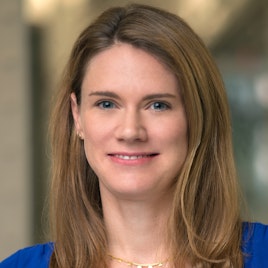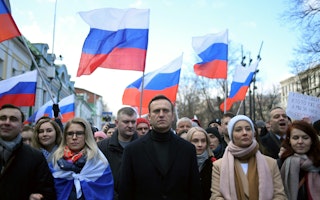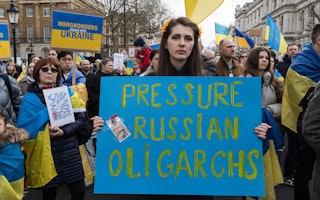The Message of the Panama Papers
By Julie McCarthy

The publication of the Panama Papers—a leak of over 11 million documents detailing a worldwide network of offshore companies that enable financial secrecy—illustrates that independent oversight and accountability are essential to monitoring financial flows. Without them, vast amounts of wealth can be furtively moved around the world—sometimes at the expense of the public.
Effective monitoring of these flows depends on norms and regulations at the international, regional, and national levels providing citizens with information and legal protections to scrutinize public resources. Yet the work by the International Consortium of Investigative Journalists (ICIJ) on the Panama Papers highlights glaring deficiencies in these monitoring mechanisms.
For instance, the leaked records in this case came from a Panama-based law firm called Mossack Fonseca, one of the world’s most prolific creators of shell companies. At present, laws in the vast majority of countries do not require public officials to disclose assets held by such shell companies. In other words, in most countries, a prime minister not disclosing assets (a luxury property, for example) that are held by a shell company on their behalf would not be breaking the law.
Regardless of legality, many of the “undeclared assets” discussed in the Panama Papers still have the power to shock, and the resulting public outcry is already ousting political leaders. While this may seem like progress, it actually hits at the heart of the problem: though it may not always be illegal, hiding assets in the shadows of international finance patently subverts the purpose of asset disclosure rules in principle.
On a regulatory front, this is a loophole that we at the Open Society Foundations are working to close. It is our hope that the exposure of records like the Panama Papers will catalyze efforts to do so. This summer, a landmark summit in the UK will address the challenge of corruption and its role in holding back progress in creating economic growth and open, inclusive societies.
In addition to closing the gaps in asset disclosure laws worldwide, the upcoming UK summit also presents an opportunity to extend progress on making public the secret owners of anonymous shell companies like those highlighted in the Panama Papers, thus curtailing their ability to move money around the global financial system. As the Wall Street Journal pointed out this week, while much has been made about the tax evasion and avoidance implications illustrated by the Panama Papers, less attention has been paid to where foreign officials got these exorbitant amounts of cash to begin with, and why it is so easy to move that money around the world with hardly any oversight.
In 2013, the UK committed to creating a public registry of the ultimate owners of UK-registered corporations, and Norway and Denmark have followed suit. In addition, a recent amendment to the EU's anti-money laundering directive—which Open Society Foundations grantees Financial Transparency Coalition and Tax Justice Europe contributed to securing—further mandated that beneficial owners of shell companies be made known, at a minimum, to law enforcement, if not the general public.
The big missing pieces of this puzzle are the UK overseas territories—the world's leading offshore financial centers like the Cayman Islands and the British Virgin Islands, which impose low to zero income taxes and offer financial secrecy—and the United States, where registering an anonymous shell company is easier than obtaining a driver’s license or registering to vote. A recent Global Witness investigation that aired on 60 Minutes demonstrates the lucrative business that lawyers, accountants, and financial agents have built around professionally enabling financial crime, with no fear of consequences.
President Obama has committed to addressing America’s role in all this. Yet every legislative effort to promote transparency around beneficial ownership has been shot down by members of Congress, who seek to protect the income that banks, a cottage industry of lawyers and accountants, and states like Delaware and Nevada generate from the anonymous shell company industry.
Recent reporting by New York Times on the abuse of shell companies to facilitate opaque luxury real estate deals in New York City with the wealth of foreign officials from countries like Russia, Malaysia, and Kazakhstan led the U.S. Treasury to announce in January that it will begin requiring real estate companies to disclose the names behind cash transactions in Manhattan and Miami for the first time.
David Cameron is expected to introduce similar beneficial ownership requirements for luxury real estate purchases at the UK’s anticorruption summit in May. These are important additional steps that can make it that much harder for kleptocratic leaders and money launderers to park their stolen wealth abroad, as well as make it more difficult for High Net Worth Individuals and multinationals to evade taxes from the jurisdictions where their income was earned.
But even more substantial would be to require British territories and crown dependencies to publicly disclose the true owners of those companies. They could start with the British Virgin Islands, where half a million companies are registered on a smattering of tiny tropical isles that boast only 28,000 residents. Such a move would be a massive blow to financial secrecy and could help end America’s political stalemate, as well.
It’s time for the world’s leaders to ensure that no one—whether public official or private citizen—can use the financial system to cover up what they’d prefer no one sees.
The International Consortium of Investigative Journalists receives general support funding from the Open Society Foundations.

Until November 2021, Julie McCarthy was co-director of the Open Society Economic Justice Program.


